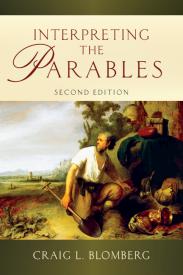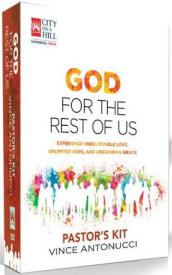Interpreting The Parables (Revised)
$45.99
Abbreviations
Preface
1. Introduction
1.1 The Previous Scholarly Consensus
1.2 The Sizable Minority Report
1.3 Newest Developments
1.4 The Scope And Outline Of This Book
Part One: Methods & Controversies In Interpreting The Parables
2. Parable & Allegory
2.1 The Current Debate: Two Main Approaches
2.1.1 Parable Vs. Allegory
2.1.2 Parable As Allegory
2.2 Evaluating The Debate
2.2.1 Contemporary Literary Criticism
2.2.2 The Rabbinic Parables
2.3 Conclusions
3. Form Criticism & The Parables
3.1 Classical Form Criticism
3.1.1 The Method
3.1.2 Critique
3.2 Hypotheses Of The Guarded Tradition
3.2.1 Memorizing Jesus Teachings
3.2.2 New Insights Into Oral Folklore And Social Memory
3.3 Conclusions
4. Redaction Criticism Of The Parables
4.1 Positive Contributions
4.1.1 The Illustration Of Distinctive Themes
4.1.2 The Significance Of The Larger Contexts
4.2 Invalid Allegations
4.2.1 Misleading Parallels
4.2.2 Dictional Analysis
4.2.3 The Theology-History Dichotomy
4.2.4 Prophecy After The Event
4.2.5 Characterizing The Parables In Different Synoptic Sources
4.2.6 Mistaking Stylistic For Theological Redaction
4.2.7 Misrepresenting The Theology Of An Evangelist
4.3 Conclusions
5. New Literary & Hermeneutical Methods
5.1 The New Hermeneutic
5.1.1 The New View Of Metaphor
5.1.2 A Critique Of The New View Of Metaphor
5.2 Structuralism
5.2.1 The Ideology
5.2.2 The Method
5.2.3 Surface Structures
5.3 Poststructuralism/Postmodernism
5.3.1 Deconstruction
5.3.2 Reader-Response Criticism
5.4 Other Literary Approaches [au: FYI, Edited To Match Text.]
5.5 Conclusions
Conclusions To Part One
Part Two: The Meaning & Significance Of Individual Parables
6. Simple Three-Point Parables
6.1 The Prodigal Son (Lk 15:11-32)
6.2 The Lost Sheep And Lost Coin (Lk 15:4-10; Cf. Mt 18:12-14)
6.3 The Two Debtors (Lk 7:41-43)
6.4 The Two Sons (Mt 21:28-32)
6.5 Faithful And Unfaithful Servants (Lk 12:42-48; Mt 24:45-51)
6.6 The Ten Virgins (Mt 25:1-13; Cf. Lk 13:24-30)
6.7 The Wheat And The Tares (Mt 13:24-30, 36-43)
6.8 The Dragnet (Mt 13:47-50)
6.9 The Rich Man And Lazarus (Lk 16:19-31)
6.10 The Children In The Marketplace (Mt 11:16-19; Lk 7:31-35)
6.11 Conclusions
7. Complex Three-Point Parables
7.1 The Talents (Mt 25:14-30; Cf. Lk 19:12-27)
7.2 The Laborers In The Vineyard (Mt 20:1-16)
7.3 The Sower (Mk 4:3-9, 13-20 Pars.)
7.4 The Good Samarita
Additional Info
In the last century, more studies of the parables were produced than for any other section of comparable length in the Bible. The problem is that few students of the Bible have access to these studies. In this substantially new and expanded edition, Craig Blomberg surveys and evaluates the contemporary critical approaches to the parables–including those that have emerged in the twenty years since the first edition was published. The classic works of C. H. Dodd and Joachim Jeremias set the direction for nearly all further parable studies in this century. Embodied in both scholars’ approaches are at least two assumptions that, for the most part, have gone unchallenged: (1) Parables make one and only one main point. (2) Parables are not allegories. But can these assumptions be supported by the evidence? Challenging this view and making his own important new contribution to parable studies, Blomberg argues that within proper definitions and limits, the parables are in fact best seen as allegories. In support of this “minority report” concerning parable interpretation, Blomberg not only sets forth theoretical considerations but devotes attention to all the major parables, providing brief interpretations that highlight the insights to be gained from his distinctive method.
in stock within 3-5 days of online purchase
SKU (ISBN): 9780830839674
ISBN10: 0830839674
Craig Blomberg
Binding: Trade Paper
Published: September 2012
Publisher: InterVarsity Press
Print On Demand Product
Related products
-
God For The Rest Of Us Pastors DVD Kit
$19.99Add to cartThe Pharisees called Jesus “a friend of sinners.” He took it as a compliment. Would you? In these resources, Pastor Vince Antonucci and his unusual church that reaches out to people on the Las Vegas Strip explore a powerful question: what if God is not just for the faithful, church-going, or holier-than-thou types – what if God is for the rest of us? This small group study expands viewpoints, overcomes stereotypes, and models how to really love people like Jesus does. The Pastor’s Kit includes everything needed to plan a six-week teaching series around the concepts presented in the Small Group Study. It includes:
Special video message for pastors
Video guide for implementing a church-wide program
Six sermon outlines
Six short video clips to accompany each week’s sermon
Six sermon bumpers (short video clips to introduce each week’s sermon)
Digital art files to use in creation of bulletins and other promo materials -
My Faith Confessions
$5.99Add to cartMy faith Confession is a colourfully illustrated confession book for children. It’s filled with Bible based confessions that will help children learn the importance of the principle of saying what God has said about them.
It’s a one-stop resource material that will inspire, sustain and build in children the culture of confession faith-filled words that would launch them into a glorious future. -
In Loving Memory LuxLeather
$19.99Add to cartThis guest book for a memorial or funeral commemorates a life, and celebrates the memory of the other lives they touched.
Lined pages
Lay-flat binding
Padded faux leather hardcover bound
Debossed cover design
Silver foil title and accents
Packaged in acetate gift box
Scripture on each page -
Weight Of Glory
$16.99Add to cartSelected from sermons delivered by C. S. Lewis during World War II, these nine addresses show the beloved author and theologian bringing hope and courage in a time of great doubt. “The Weight of Glory,” considered by many to be Lewis’s finest sermon of all, is an incomparable explication of virtue, goodness, desire, and glory. Also included are “Transposition,” “On Forgiveness,” “Why I Am Not a Pacifist,” and “Learning in War-Time,” in which Lewis presents his compassionate vision of Christianity in language that is both lucid and compelling.






Reviews
There are no reviews yet.